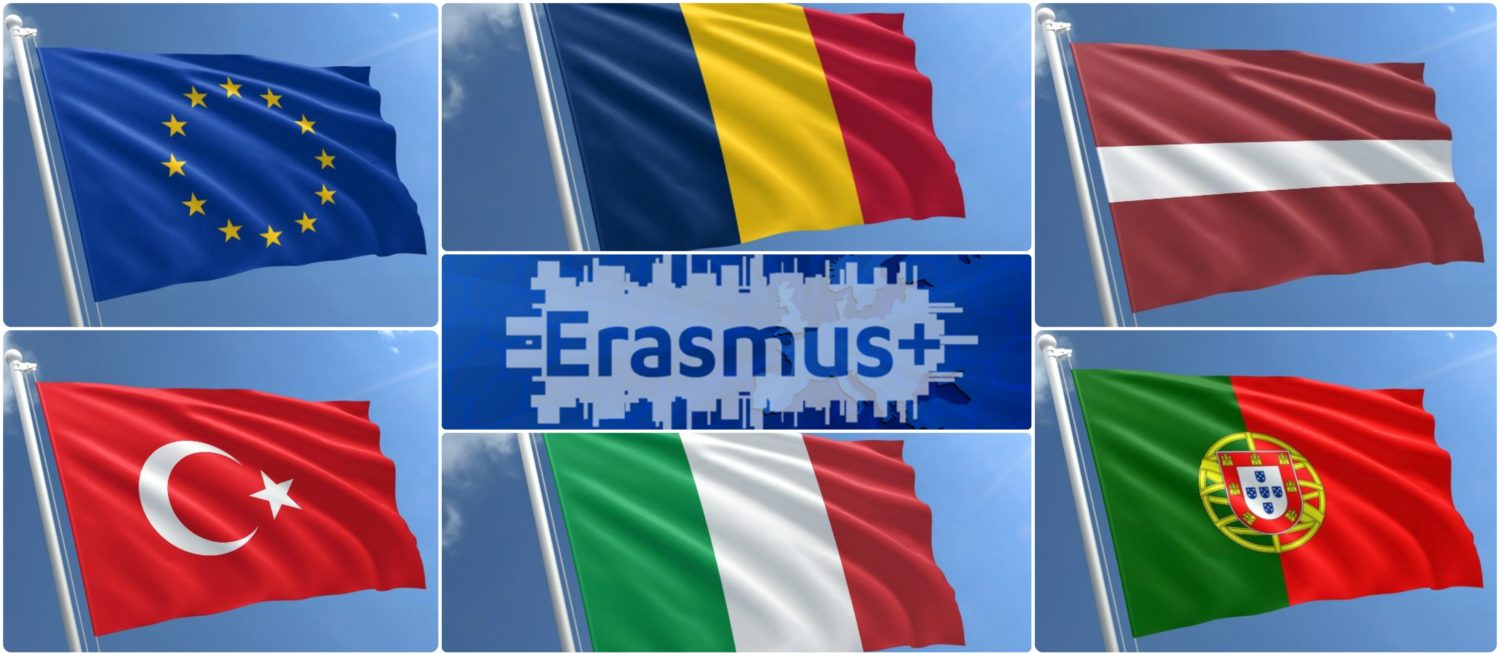“Hand to Hand – Together in Europe” (reference number 2018-1-RO01-KA229-049337) is an Erasmus+ School Exchange Partnership funded by the European Union and implemented between September 1st, 2018 and August 31st, 2020. Its duration was extended until October 31st, 2020, due to the COVID-19 pandemic. It brings together five European schools: Liceul Tehnologic “Mihai Eminescu” Dumbrăveni from Dumbrăveni (Romania) – coordinator, Şehit Ali Aksoy Ortaokulu from Akhisar (Turkey), Agrupamento de Escolas de Samora Correia from Samora Correia (Portugal), Rīgas 22. vidusskola from Rīga (Latvia) and Istituto Comprensivo “Giovanni Pierluigi” Palestrina from Palestrina (Italy). The main priority of the partnership is the social and educational value of the European cultural heritage, and its additional priorities are promoting the acquisition of skills and competences, as well as social inclusion.
The objectives of the project, based on the needs identified by all partners, are the following: promoting cultural diversity and intercultural dialogue, supporting the inclusion of students at risk of marginalization, internationalizing the school curriculum for school success and education for life, improving their communication in English as a foreign language, and fostering interest for self-development in a multicultural society.

This two-year project gives pupils aged between 12 and 15 a chance to develop multiple skills and competences, as well as learn about other countries. Most of the activities are concentrated within five clubs, each of them developing a certain aspect of a country’s cultural heritage: “The magical world of fairy tales”, “It’s us” – songs and dances, “The whisper of the past builds up the future”, “Nature wonders” and “Art heritage”. The project activities also address all learning styles: visual, auditory, practical and kinaesthetic.
The teachings tools used within the partnership are fairy tales, traditional songs and dances, historical stories, customs and traditions that are part of the national identity. These contribute to developing the pupils’ imagination, creativity, empathy, respect, tolerance, appreciation for different cultures and encouraging positive attitudes, no matter the country, religion or race.
The direct international cooperation offers all the participants the possibility to expand communication networks, to exchange ideas and education methods and to create innovative tangible outputs. It also leads to the internationalization and development of the school curricula of the countries involved in the project by integrating transnational tools and teaching-learning methods.

